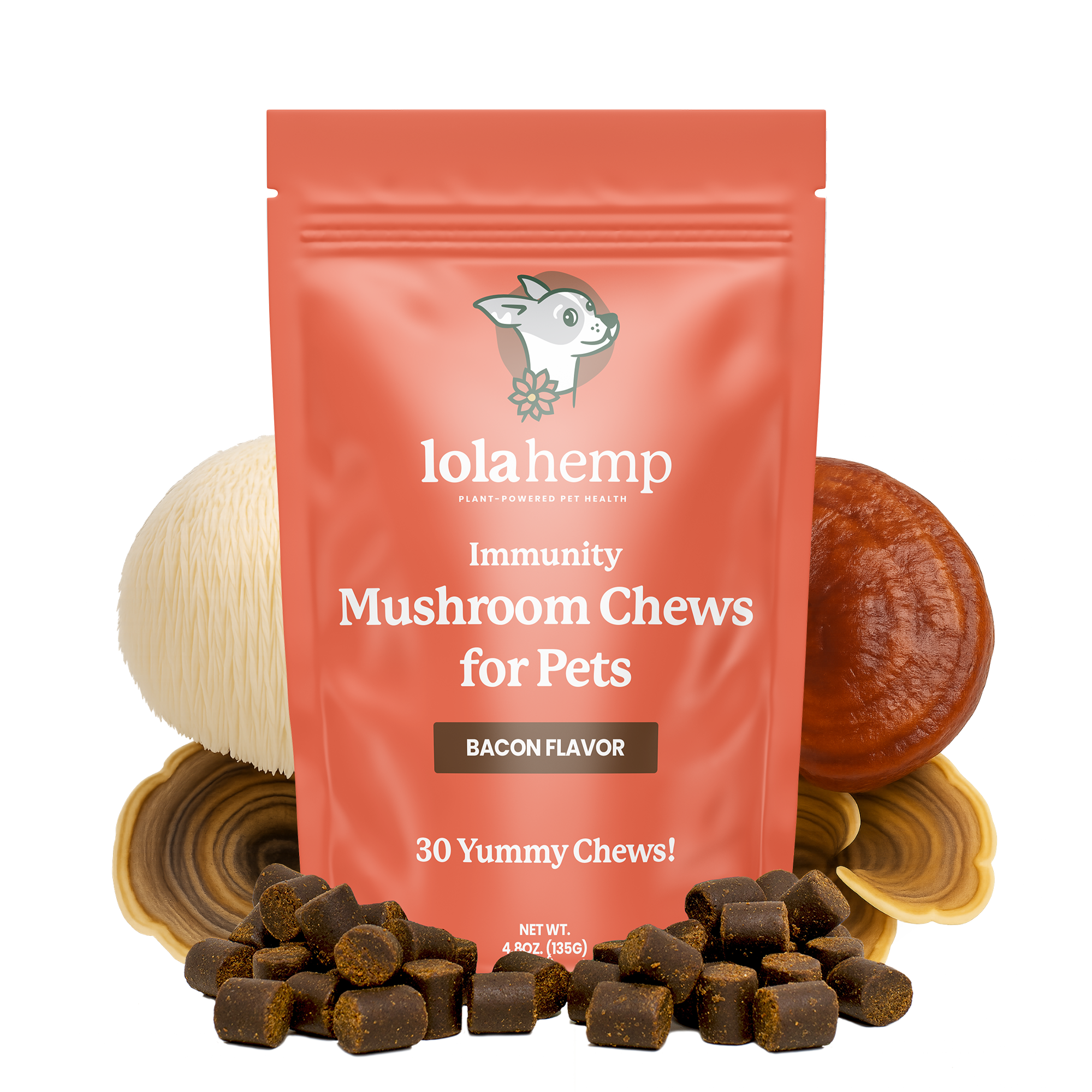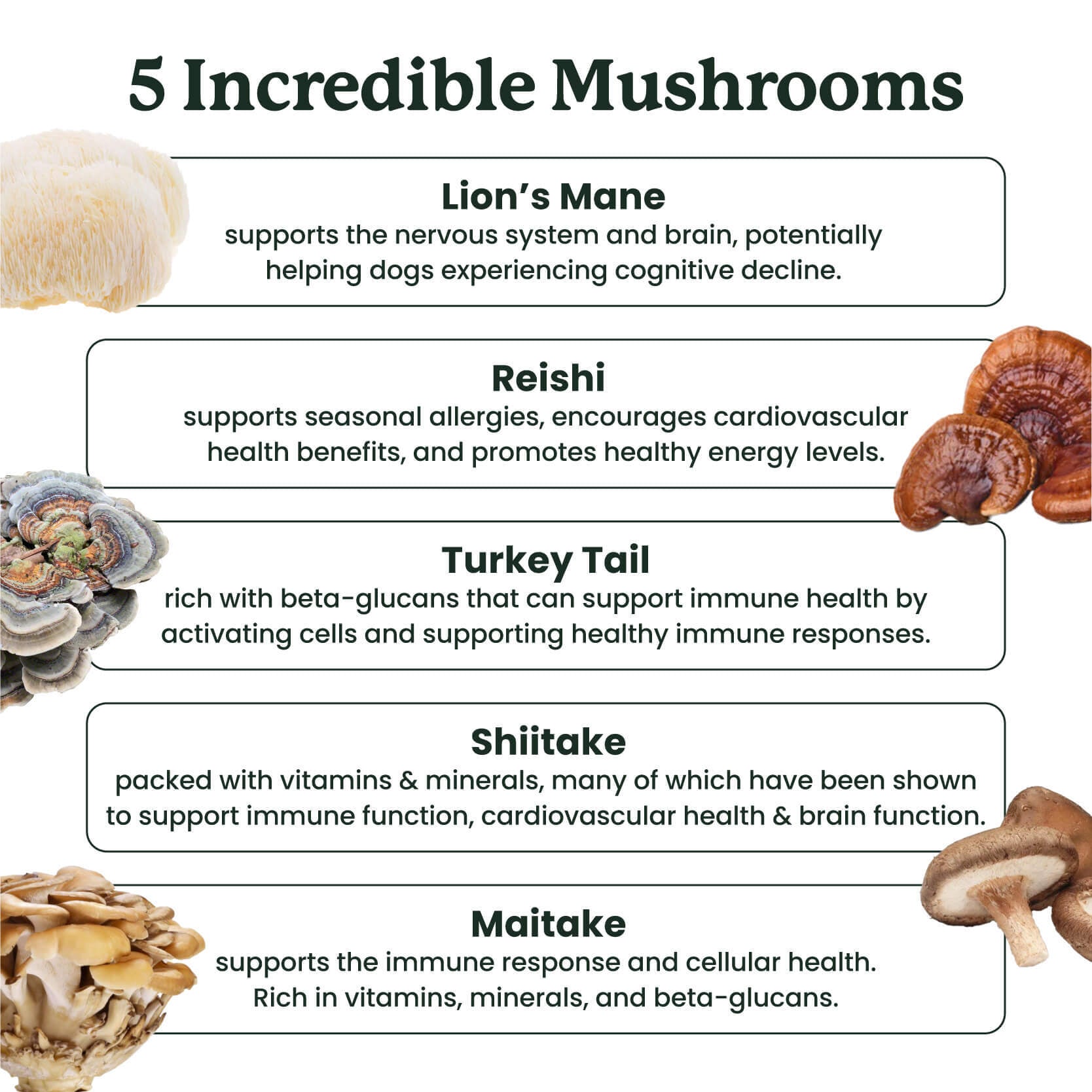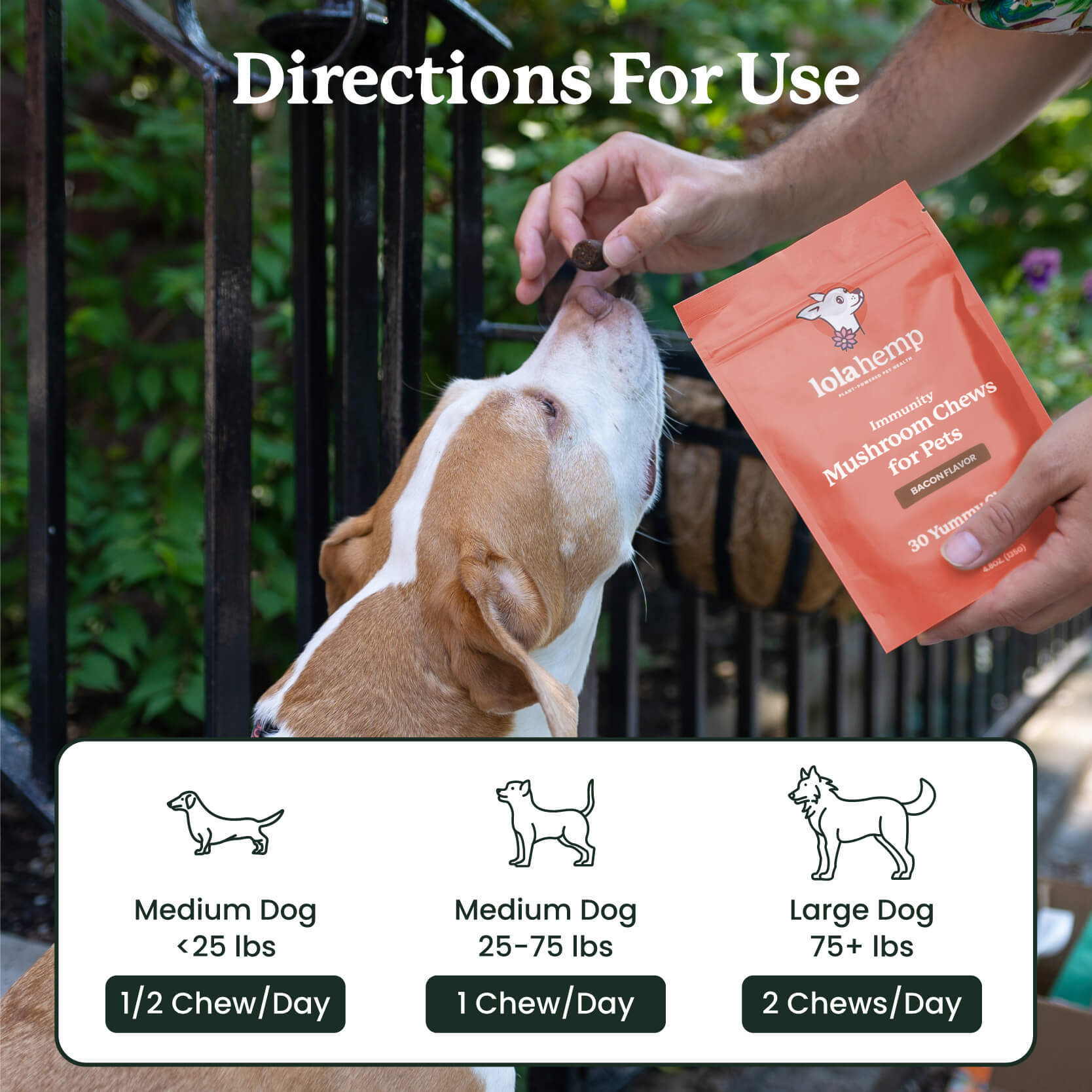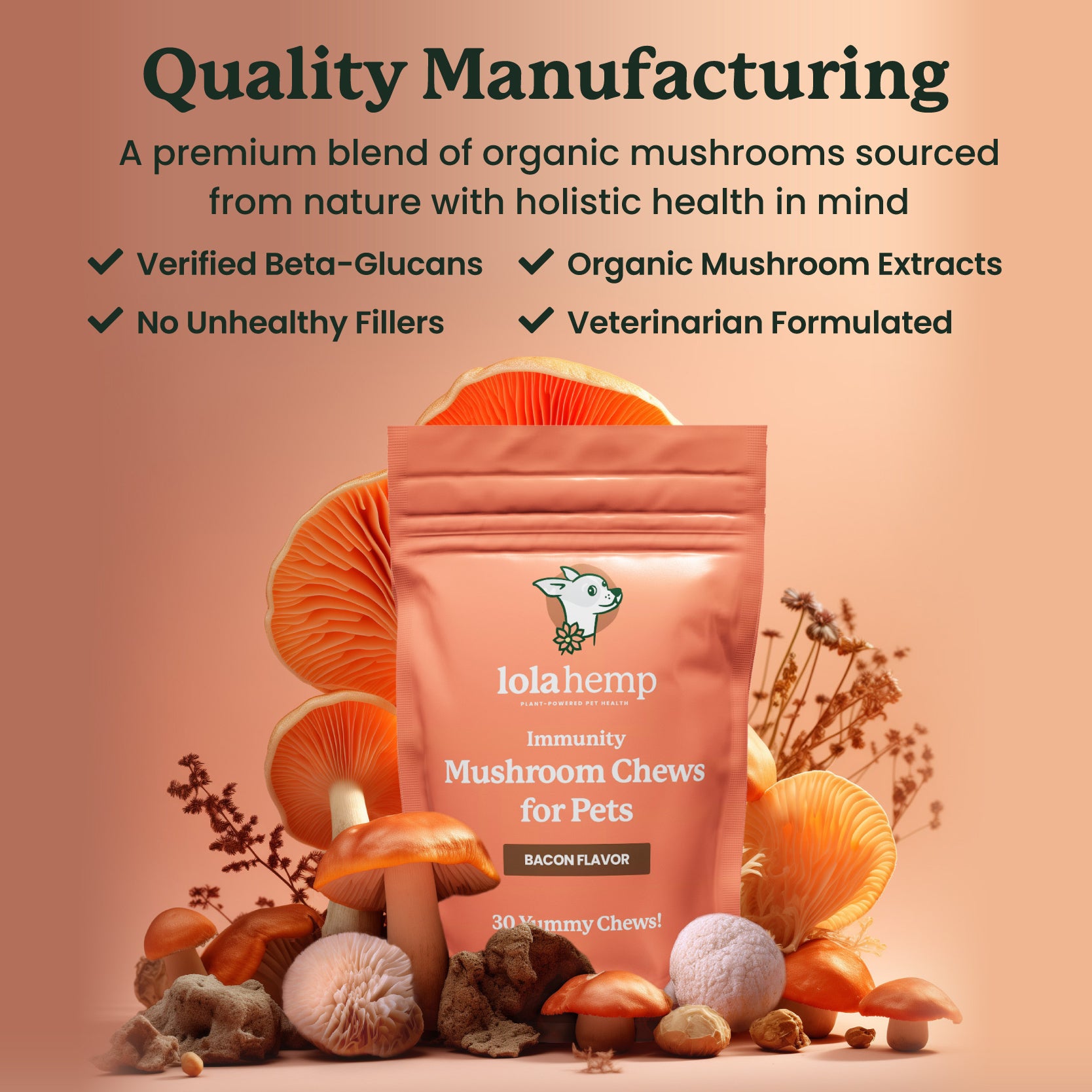Allergies are common in dogs, especially when the seasons change. Whether your dog suffers from environmental allergens, like pollen, or food-related sensitivities, these issues can cause discomfort, itching, and other health problems.
But did you know that mushrooms could help? Certain mushrooms are known for their immune-boosting properties, and they may offer relief to dogs dealing with allergies. Let’s explore how mushrooms can benefit dogs with seasonal or general allergies.
Why Allergies Affect Dogs
Just like humans, dogs can develop allergies to things like pollen, mold, dust mites, or certain foods. When a dog’s immune system reacts to these allergens, it can cause inflammation, itchy skin, ear infections, sneezing, and even digestive upset.
This is where mushrooms come in: they help regulate the immune system, potentially reducing allergic reactions and improving your dog’s overall health.
The Benefits of Mushrooms for Dogs with Allergies
Some mushrooms are especially helpful in managing allergies due to their powerful anti-inflammatory and immune-modulating effects. Here are a few that might make a difference for your dog:
- Reishi Mushrooms: Known for their ability to reduce inflammation and balance the immune response, Reishi mushrooms can help soothe allergic reactions in dogs by calming an overactive immune system.
- Turkey Tail Mushrooms: Rich in beta-glucans, Turkey Tail supports immune health and helps the body cope with inflammatory conditions, making it beneficial for dogs suffering from seasonal allergies.
- Shiitake Mushrooms: These mushrooms are packed with compounds that help maintain a healthy immune system and reduce inflammation, potentially offering relief for dogs with skin allergies or environmental sensitivities.
- Lion’s Mane Mushrooms: Best known for their cognitive benefits, Lion’s Mane also has anti-inflammatory and antioxidant properties that may help reduce neurological inflammation and support overall immune balance—particularly helpful for dogs experiencing allergy-related stress or itching.
- Cordyceps Mushrooms: Traditionally used to boost stamina and lung function, Cordyceps also possess immune-modulating effects and may reduce respiratory inflammation. This can make them especially useful for dogs with allergy-induced coughing, wheezing, or breathing discomfort.
By incorporating these mushrooms into your dog’s diet, you may be able to help support their immune system, reduce inflammation, and ease allergic reactions.
How to Safely Incorporate Mushrooms into Your Dog’s Diet to Support Allergies
If you’re considering adding mushrooms to your dog’s health regimen, it’s important to do so safely. Here’s how to get started:
- Choose Quality Products: Always opt for high-quality mushroom supplements specifically formulated for dogs. Look for products that are organic and free from fillers or artificial ingredients.
- Start Slowly: Introduce the mushroom supplement gradually, observing any changes in your dog’s behavior or health. This will help you gauge how they’re responding to the new supplement.
- Consult Your Veterinarian: If your dog has allergies or is on medication, check with your vet before introducing mushrooms to ensure they’re safe and suitable for your dog’s needs.
Remember, not all mushrooms are safe for dogs, so it’s best to stick to those that are commonly used in supplements and recommended by veterinarians.
How Will I Know if Mushrooms Are Helping My Dog's Allergies?
It can take some time to see noticeable results, but there are a few key signs that mushrooms might be making a difference for your dog:
- Reduced Itching and Scratching: Mushrooms may help reduce inflammation, which can lead to less itching, particularly for dogs with skin allergies.
- Improved Breathing and Comfort: Seasonal allergies can cause respiratory issues, but mushrooms like Reishi may help calm an overactive immune system and ease these symptoms.
- Healthier Skin and Coat: By reducing inflammation and supporting the immune system, mushrooms could improve your dog’s overall skin health, leading to a shinier, healthier coat.
Pay attention to any changes in your dog’s behavior, skin, and energy levels. Over time, you might notice a reduction in allergy symptoms and an improvement in your dog’s overall comfort.
Conclusion
Mushrooms offer a natural, safe way to support your dog’s immune system and potentially ease the effects of allergies.
With the right mushroom products, your dog could enjoy relief from seasonal and environmental allergies, while also benefiting from the broader health-boosting effects of mushrooms. Be sure to choose high-quality supplements, consult your vet, and monitor your dog’s response to see if mushrooms are the right fit for them.
Frequently Asked Questions About Mushrooms for Dogs with Allergies
1. Are mushrooms safe for dogs with allergies?
Yes, when using vet-approved mushroom supplements designed for dogs. Avoid wild mushrooms, as many can be toxic. Always introduce them gradually and monitor for any reactions.
2. How long does it take to see results from mushrooms for allergies?
Some dogs show improvement in a few weeks, while others may take one to two months. Mushrooms work best when used consistently as part of a long-term wellness routine.
3. Can I give my dog multiple mushroom types at once?
Yes, many supplements blend species like Reishi, Turkey Tail, and Shiitake for comprehensive immune and allergy support. Check the label and dosage guidelines for your dog’s weight.
4. Are there any side effects of mushroom supplements for dogs?
Most dogs tolerate them well, but mild digestive upset can occur when starting a new supplement. Begin with a small dose and consult your vet if symptoms persist.
5. Do mushrooms replace allergy medication for dogs?
No. Mushrooms are a complementary support, not a replacement for prescribed allergy treatments. They can, however, improve your dog’s immune balance and overall comfort when used alongside veterinary care.









